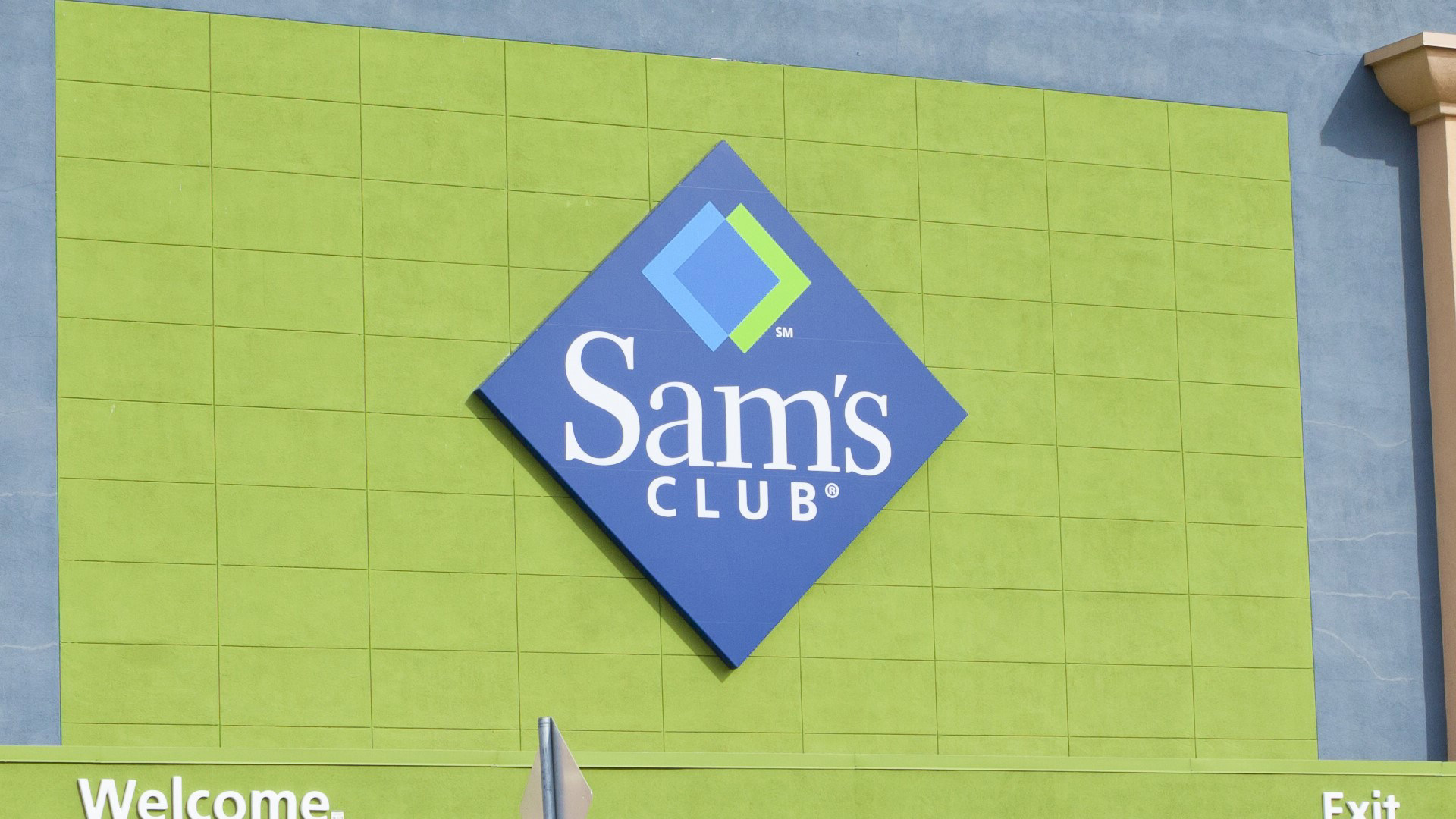Let’s get straight to the point here. Sam's Club rolling back DEI has been a hot topic lately, and people are talking about it everywhere. If you’re scratching your head wondering what this means or why it matters, you’re not alone. DEI—short for Diversity, Equity, and Inclusion—has been a cornerstone of many organizations’ policies in recent years. But now, whispers in the corporate world suggest that Sam’s Club might be taking a step back. So, is it true? And if so, what does it mean for employees, members, and the broader community? Let’s dive in.
Imagine walking into Sam's Club one day and realizing that the initiatives designed to foster an inclusive environment are quietly being dismantled. That’s the vibe some employees are reporting. DEI programs have long been celebrated as a way to create fairer workplaces and promote representation. But with rumors swirling, it’s time to separate fact from fiction. In this article, we’ll explore the truth behind Sam’s Club’s alleged rollback and what it could mean for the future.
Why does this matter? Because DEI isn’t just a buzzword—it’s about people. It’s about ensuring that everyone, regardless of their background, feels valued and respected. Whether you’re a member who shops at Sam’s Club or an employee who works there, this decision could impact you directly. Stick around as we break it all down and give you the scoop you deserve.
- Alvin And The Chipmunks Alvin Crying Ndash The Heartfelt Story Behind The Tears
- Do U Not Get The Concept A Deep Dive Into Understanding This Common Phrase
What Exactly Is DEI, Anyway?
Before we jump into the nitty-gritty of Sam’s Club’s alleged rollback, let’s quickly refresh our memories on what DEI actually means. Diversity refers to the variety of differences among people in an organization, including race, gender, ethnicity, religion, and more. Equity focuses on fairness and justice, ensuring everyone has access to the same opportunities. Inclusion is about creating a culture where everyone feels welcome and empowered to contribute.
In today’s world, DEI isn’t just a nice-to-have; it’s essential. Companies that prioritize these values tend to perform better, attract top talent, and build stronger connections with their customers. But when a company like Sam’s Club starts scaling back, it raises eyebrows—and for good reason.
Why Did Sam's Club Roll Back DEI? The Rumor Mill
Let’s address the elephant in the room. Reports suggest that Sam’s Club may have made changes to its DEI initiatives. Some insiders claim it’s part of a larger cost-cutting strategy, while others believe it reflects shifting priorities within the company. Whatever the reason, the move has sparked debate among employees, members, and even industry experts.
- Zorbi Magic Flying Saucer The Ultimate Fun Toy For Everyone
- Wooden Backdrop Arch Transform Your Space With Stunning Rustic Elegance
But why would a company backtrack on something as important as DEI? Is it purely financial, or are there other factors at play? As we dig deeper, we’ll uncover the potential reasons behind this decision and what it could signal for the future.
Cost-Cutting or Cultural Shift?
One theory floating around is that Sam’s Club is rolling back DEI as part of its efforts to cut costs. In a competitive retail landscape, companies often look for ways to streamline operations and boost profits. Unfortunately, this sometimes means sacrificing programs that don’t directly contribute to the bottom line.
However, others argue that it’s more than just cost-cutting. There’s speculation that the rollback reflects a broader cultural shift within the organization. As societal attitudes toward DEI continue to evolve, some companies may feel pressure to pivot in response to changing public opinion. Whether this is a good thing or not depends on your perspective.
The Impact on Employees
For employees, the rollback of DEI initiatives could have significant implications. Programs designed to support diversity, equity, and inclusion often provide resources and training that help workers thrive. Without them, employees from underrepresented groups may feel isolated or undervalued.
Moreover, the absence of DEI initiatives can lead to a toxic work environment where bias and discrimination go unchecked. This not only affects morale but also productivity and retention rates. So, how are employees reacting to these changes, and what steps can they take to advocate for themselves?
Employee Voices: What Are They Saying?
Many employees have spoken out about their concerns regarding the rollback. Some express fear that the move will erode the progress made in recent years, while others worry about the long-term impact on workplace culture. Here’s what a few employees had to say:
- "It feels like we’re taking two steps back after making so much progress." – Sarah T., Warehouse Associate
- "DEI programs were one of the reasons I joined Sam’s Club. Without them, I question whether this is still the right place for me." – John L., Customer Service Rep
- "I hope management realizes how important these initiatives are for creating a fair and inclusive workplace." – Maria G., Team Lead
These voices highlight the emotional and professional stakes involved in this decision.
How Does This Affect Members?
Members who shop at Sam’s Club may also feel the effects of the rollback, albeit indirectly. Companies with strong DEI programs tend to foster better relationships with their customers, as people are more likely to support brands that align with their values. If Sam’s Club’s commitment to diversity wanes, it could alienate members who care deeply about these issues.
Additionally, the rollback might influence the products and services offered by the company. For example, initiatives aimed at supporting minority-owned businesses could be scaled back, limiting the variety of products available to members. This raises the question: Will Sam’s Club’s decision ultimately hurt its bottom line?
Member Feedback: Are They Concerned?
While members may not be directly involved in Sam’s Club’s internal policies, they still have opinions. Some have expressed disappointment over the alleged rollback, while others remain indifferent. Here’s a sampling of member feedback:
- "I chose Sam’s Club because I believed in their commitment to diversity. If they’re stepping back from that, I might reconsider my membership." – Emily R.
- "Honestly, I don’t think it will affect my shopping habits. I come here for the deals, not the policies." – David S.
- "It’s disappointing to see a big company like Sam’s Club backpedal on something so important. I hope they reconsider." – Priya M.
Clearly, opinions vary, but the overall sentiment suggests that members care about more than just discounts.
The Broader Implications
Sam’s Club isn’t operating in a vacuum. The decision to roll back DEI could set a precedent for other companies in the retail sector. If successful, it might encourage others to follow suit, potentially reversing years of progress in creating inclusive workplaces. On the flip side, if the rollback leads to negative consequences—such as decreased employee satisfaction or lost business—it could serve as a cautionary tale.
Moreover, the move highlights the ongoing debate over the role of corporations in promoting social justice. While some argue that businesses should focus solely on profit, others believe they have a responsibility to address societal issues. As this debate continues, companies like Sam’s Club will need to navigate the delicate balance between financial success and ethical responsibility.
Industry Trends: Is Sam’s Club Alone?
Interestingly, Sam’s Club isn’t the only company grappling with DEI challenges. Recent reports suggest that several major corporations have either scaled back or reevaluated their DEI initiatives. This trend raises questions about the sustainability of these programs and whether they’re truly seen as core to business operations.
However, there are also examples of companies doubling down on DEI, recognizing its value in driving innovation and growth. As the business landscape continues to evolve, it will be fascinating to see which approach prevails.
Data and Statistics: What Do They Say?
To understand the significance of Sam’s Club’s alleged rollback, let’s look at some data. Studies consistently show that companies with strong DEI programs outperform those without them. According to McKinsey, organizations in the top quartile for gender diversity on executive teams were 25% more likely to have above-average profitability. Similarly, ethnically diverse companies were 36% more likely to outperform their peers.
Furthermore, research from Deloitte indicates that inclusive workplaces see a 30% increase in team performance and a 50% reduction in turnover. These numbers paint a compelling picture of why DEI matters—not just for social reasons but for business success as well.
Why Numbers Matter
Data like this provides a clear argument for maintaining—and even expanding—DEI initiatives. It shows that investing in diversity and inclusion isn’t just the right thing to do; it’s also good for business. Companies that ignore these findings risk falling behind in an increasingly competitive market.
What’s Next for Sam’s Club?
As of now, the full extent of Sam’s Club’s rollback remains unclear. However, one thing is certain: the decision will have far-reaching consequences. Whether it results in a more streamlined operation or a damaged reputation remains to be seen. In the meantime, employees, members, and stakeholders will be watching closely to see how the company navigates this challenging period.
For those hoping to influence the outcome, there are steps you can take. Employees can voice their concerns through internal channels, while members can express their opinions via social media or customer feedback forms. Together, these actions can help shape the direction Sam’s Club takes moving forward.
Your Voice Matters
Remember, your voice has power. Whether you’re an employee, member, or concerned citizen, you have the ability to make a difference. By speaking up and advocating for what you believe in, you contribute to a larger movement for change. So, don’t underestimate the impact you can have.
Conclusion: Where Do We Go From Here?
In summary, the alleged rollback of DEI at Sam’s Club is a complex issue with significant implications. While the reasons behind the decision remain unclear, one thing is certain: diversity, equity, and inclusion matter. They matter for employees, members, and the broader community. As we move forward, it’s crucial to continue advocating for these values and holding companies accountable.
We invite you to join the conversation by sharing your thoughts in the comments below. What do you think about Sam’s Club’s decision? Do you believe it’s a step forward or backward? Let’s keep the dialogue going and work toward a more inclusive future for all.
And don’t forget to check out our other articles for more insights into the world of business, culture, and beyond. Together, we can create a brighter tomorrow.
Table of Contents
- What Exactly Is DEI, Anyway?
- Why Did Sam's Club Roll Back DEI?
- Cost-Cutting or Cultural Shift?
- The Impact on Employees
- Employee Voices: What Are They Saying?
- How Does This Affect Members?
- Member Feedback: Are They Concerned?
- The Broader Implications
- Industry Trends: Is Sam’s Club Alone?
- Data and Statistics: What Do They Say?
- What’s Next for Sam’s Club?
- Your Voice Matters
- Conclusion: Where Do We Go From Here?
- Do U Not Get The Concept A Deep Dive Into Understanding This Common Phrase
- Azealia Banks September 9 The Untold Story Of A Fearless Icon


